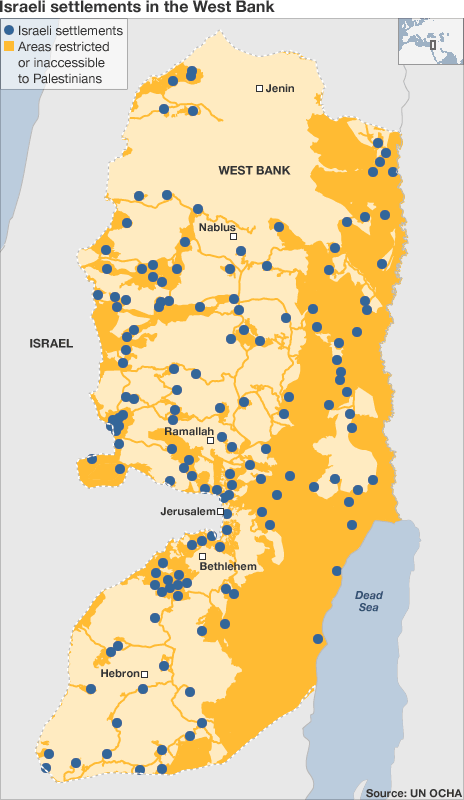News item 16 September 2013 also in Democrat July-August 2013 (Number 136)
EU firm line on Israel urged

Fifteen former high-ranking EU officials and politicians have urged the EU not to bow to Israeli and US requests to alter new rules on settler funding. They said in a letter, (16 September) to EU foreign ministries and to EU foreign relations chief Catherine Ashton, that Israel's claims the rules will harm peace talks are not true. They noted that Palestinians resumed the talks, in part, because the EU rules gave them confidence.
"Their strict application serves to re-iterate that the EU does not recognise and will not support settlements and other illegal facts on the ground … which threaten to make a negotiated solution to the Israeli-Palestinian conflict impossible," the letter says.
"A delay or suspension of the guidelines ... would undermine the negotiations by alienating the Palestinians and by reinforcing Israel's intransigence," it notes. "It would [also] damage the EU's credibility and erode its vital foundations as a law-based community," it adds.
Signatories include four former EU foreign relations chiefs: Javier Solana, Benita Ferrero- Waldner, Hans van den Broek and Frans Andriessen.
The EU in July published guidelines which force Israeli institutions and firms to sign contracts pledging not to use EU money to fund activity on Palestinian land.
Israel has given up on trying to get the rules deleted. But it says it will not join EU projects, such as the Horizon 2020 science scheme, unless the EU drafts agreements which do not force it to acknowledge EU-and-UN-recognised borders.
Based on report by Andrew Retten (EUObserver 16.9.13)